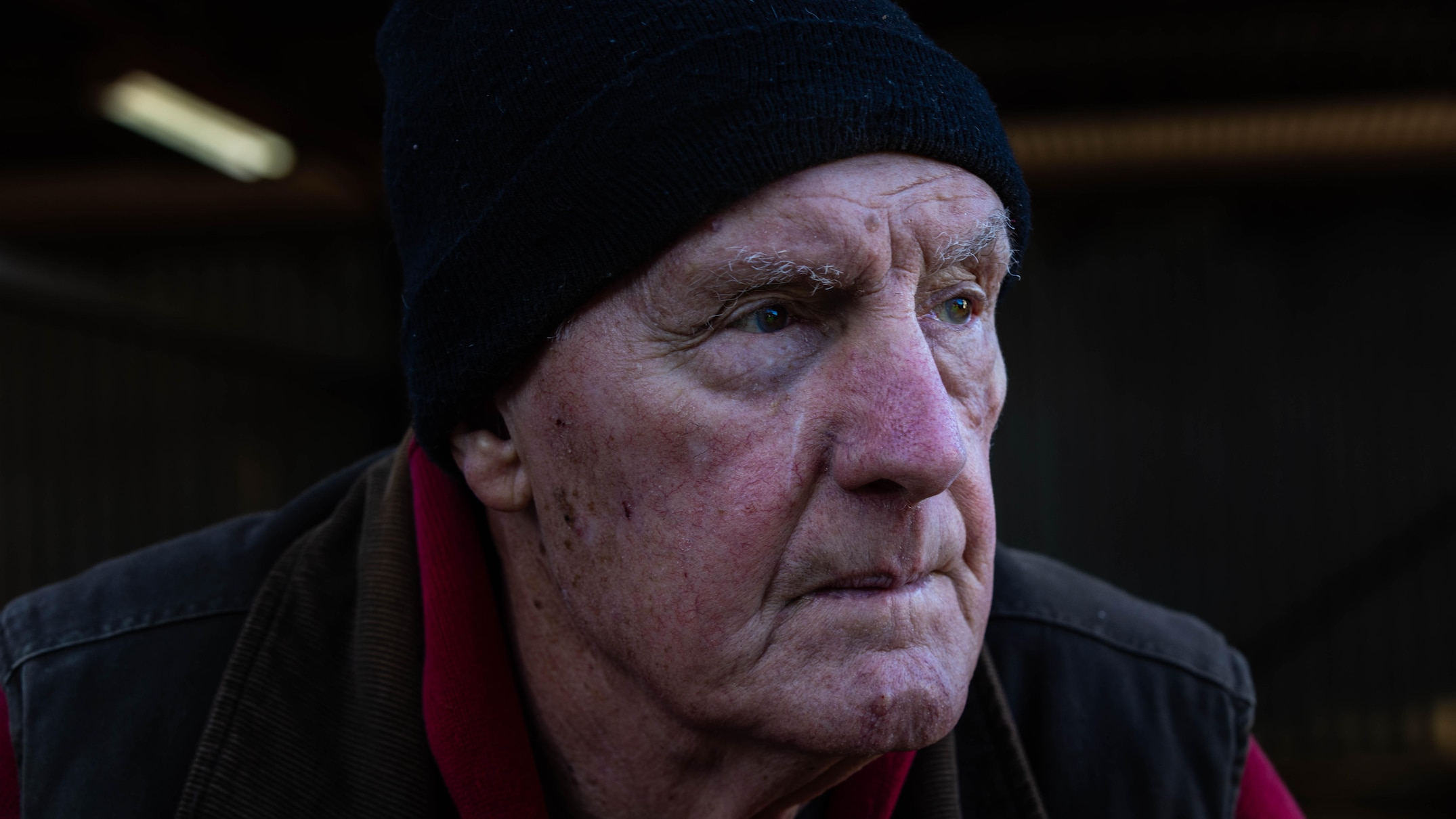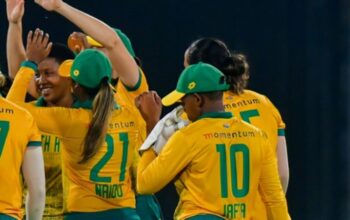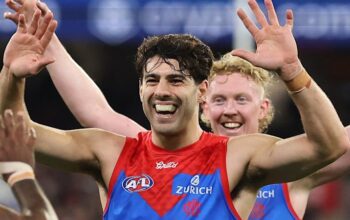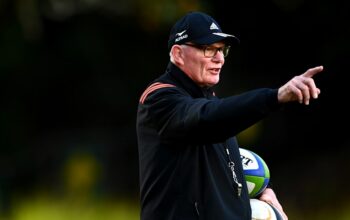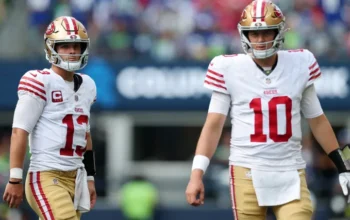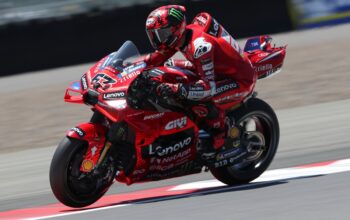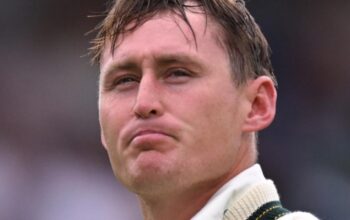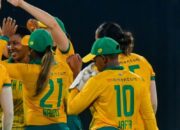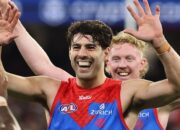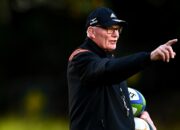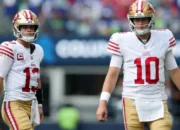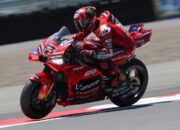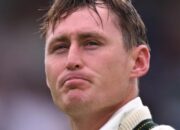Racing is famously known as the sport of kings, but like the city’s gold miners, veteran Kalgoorlie trainer John Lugg is very much working class.
The son of a World War II veteran and wharfie, 76-year-old Lugg still sets his alarm for 3:30am most days to attend early morning track work.
In 1979, he visited Kalgoorlie for the first time and “fell in love with the place”, settling in the historic mining city, 600 kilometres east of Perth.
His arrival in Western Australia’s Goldfields followed several years working in the Flemington stables of “cups king” Bart Cummings.
Lugg learned enough from the 12-time Melbourne Cup winner to enjoy several memorable wins, but none bigger than his 2004 Kalgoorlie Cup triumph with Violent Wind.
“He [Cummings] played it pretty close to the chest … he never let out the secrets,” he said.
“I won a Kalgoorlie Cup in 2004 … it was my Melbourne Cup — it was like winning a Melbourne Cup.”
Raising the stakes
Spring in Kalgoorlie means it is time for residents to indulge in what they call the “Race Round”, but this year is different.
Known as Australia’s gold mining capital, Kalgoorlie’s mineral wealth seemingly makes it the natural choice for a new million-dollar horse race, Golden Saddle — believed to be the biggest stakes in regional WA.
The race has been billed as a way to reinvigorate the Goldfields’ spring carnival, which is as much about the fashion stakes and party atmosphere as the races on course.
While Lugg is not saddling up a runner, he will be one of thousands of interested onlookers, along with thousands more watching on pay TV, for the inaugural race on Saturday.
“I’m sure it will be a race everyone wants to win,” he said.
For obvious reasons, the winning connections will share in $400,000 prize money.
“Ten years down the track, people will be saying, ‘Who won the first Golden Saddle?’ Like the Kalgoorlie Cup, this race will create its own history,” Lugg said.
Many of his fellow trainers share similar views.
“I’ve been training horses here since 1976 and I think it’s the greatest thing that’s ever happened to Kalgoorlie,” trainer Gary Bowen said.
Esperance-based trainer Helen Harding makes the 400km journey from WA’s south coast to Kalgoorlie for meetings.
“I think it’s great for Kalgoorlie and great to see it in the country,” she said.
Reinvigorating the Round
The Golden Saddle will be run over 1,200 metres — the same distance as the world’s richest horse race, the $20 million Everest at Sydney’s Randwick Racecourse.
The Everest has reinvigorated Sydney’s spring carnival since it was first staged in 2017, and inspired the equivalent race in Perth, the $5 million Quokka, which was first held in 2023.
The Kalgoorlie-Boulder Racing Club (KBRC) is hopeful the Golden Saddle can provide a similar shot in the arm.
“It’s going to be unbelievable for promotion for the whole region,” KBRC chairman Trevor Tasker said.
“It’s going to bring the eyes of Australia, New Zealand and Singapore onto Kalgoorlie.”
The region’s racing history dates back to 1896, just three years after the discovery of gold at Kalgoorlie.
Despite record gold prices bringing renewed mining investment to the region, the spring carnival has lost some of its lustre in recent years.
This season might not have gone ahead until the state government provided emergency funding, amid a public spat between the KBRC and the City of Kalgoorlie-Boulder over water costs.
For decades, the carnival was highlighted by three race meetings in the same week to attract the best horses, trainers and punters from Perth.
Kalgoorlie Cup day remains the highlight, attracting up to 18,000 spectators at its peak.
Those huge crowd numbers are becoming a distant memory, like many of the colourful on-course bookmakers who have disappeared from the betting ring.
Another major change in recent years has been the decision to hold the Boulder Cup meeting a fortnight earlier due to declining horse numbers.
It has left the traditional ladies’ day meeting known as the Hannans Handicap — named in honour of pioneering prospector Paddy Hannan — and the Kalgoorlie Cup meeting to stand on their own.
New ‘sporting drawcard’
The concept for the Golden Saddle was the brainchild of several prominent business leaders and, notably, WA mining entrepreneur Bill Beament.
As a slot race, owners, syndicates or corporate entities bid for the right to nominate a horse in the race, paying upwards of $35,000.
When Premier Roger Cook announced $1.5 million in government funding towards the Golden Saddle over three years, the plan was to bring a “significant new sporting drawcard” to regional WA.
“This will be the race that stops the Goldfields,” he declared.
Trainer John Lugg reckons the government is onto a winner, but thinks the $150,000 Kalgoorlie Cup — a 2,300m staying race compared to the richer sprint — will remain the pinnacle for local trainers.
“Don’t forget it’s Kalgoorlie Cup day … that’s the big one we all want to win.”
